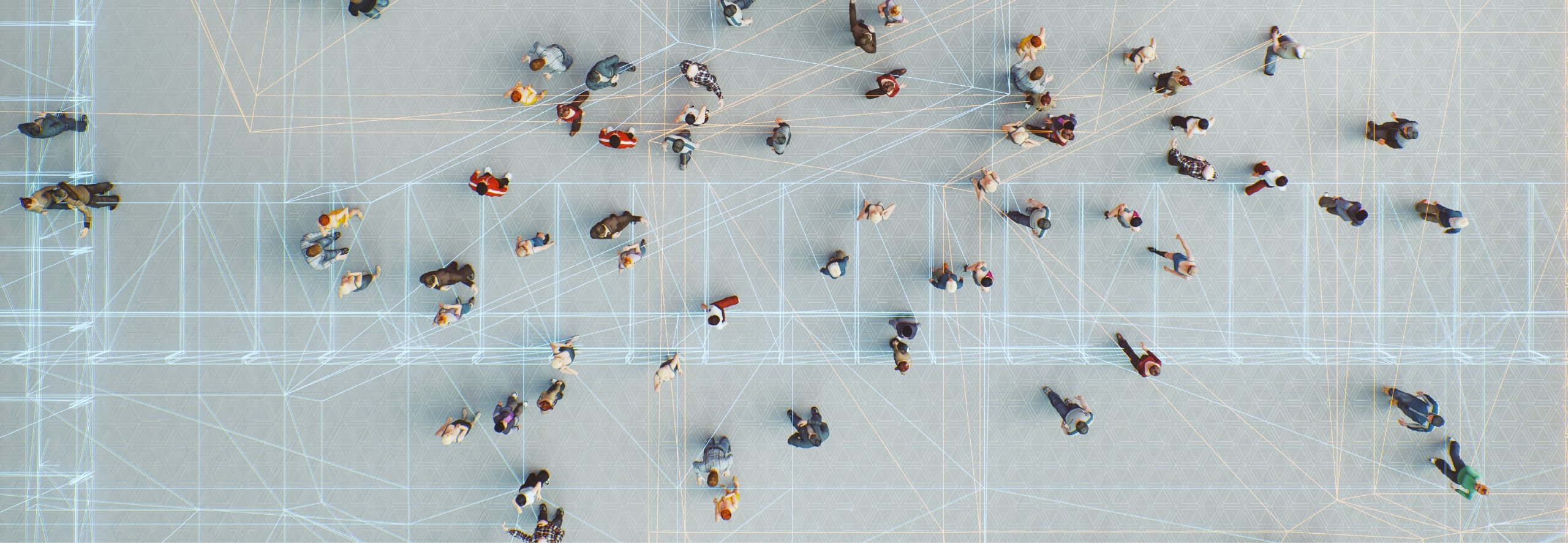Robert Half Chief Digital Officer: Connecting and collaborating will be critical in 2035
IN BRIEF
- In the future, the metaverse will be as much a part of our working life as our office or our computers.
- We’ll see the emergence of technologies that will allow us to connect virtually so we can collaborate creatively again. That’s been missing.
- We'll see a lot more business being conducted in the virtual world than we ever have before.
Colin Mooney is the Chief Digital Officer for Robert Half, Protiviti’s parent company. Mooney has a broad background in banking, venture capital, technology startups and business transformation. Before coming to Robert Half, Mooney was Strategic Innovation Director with Salesforce and in that role consulted with Amazon, Starbucks, Intel, Nike, T-Mobile, Toyota, Whole Foods, Walmart, Paramount Studios and many more. Joe Kornik, VISION by Protiviti’s Editor-in-Chief, sat down with Mooney to talk emerging tech and the future of work.
Kornik: What are the emerging technologies that will have the biggest impact on work in 2030 and beyond?
Mooney: I think the increase in remote work and virtual settings is going to bring with it a flurry of automation tools that are going to enable people to complete tasks differently. Why would you take your own call notes when there are apps like Otter.ai that use natural language processing to transcribe telephone calls? A slightly different example is TurboTax, and how it promotes its use of a full-spectrum avatar. It’s more about advertising digital access to an accounting expert than it is about doing your taxes using their software. It’s important to remember that we’re not automating or eradicating a human expert or knowledge worker in any of this; it’s automation to eliminate or simplify a task, not to eliminate a person. As we’ve observed computing advances from the 1960s until now, each phase of technological evolution we went through created more jobs than before. The new things that happen will become less about the technology itself and more about what the technology allows us to do, and I’d say automation and artificial intelligence (AI) are the ones that will have the biggest impact over the next 10 years.
Kornik: That’s interesting. Your opinion matches our C-level research with Oxford saying AI and emerging technologies will add jobs. What are your thoughts on AI and the future of work?
Mooney: AI will create bigger companies and bigger opportunities and those companies will almost certainly be adding job opportunities. Companies will get more comfortable with AI being involved with business tasks like business development, sales efficiency, lead processing and customer engagement so adoption of AI will increase. And if AI leads to more success, the first thing most organizations will do is add more jobs, so it can be more of a good thing. I think productivity and efficiency are two key areas where AI is going to be hugely impactful. As a result, I think we’ll see a lot of companies add new jobs to support AI.
Kornik: Will we need a massive training push to get the workforce ready for AI and, for that matter, all emerging technologies? Do you see a skills and capabilities gap for workers over the next decade?
Mooney: Yes, I do think we’ll have to think about a new system of skills, training, and learning. It’s been said that successful people will need to be able to learn, unlearn and relearn throughout their entire careers, and companies should design training so employees can do that successfully. Think about a 20-year employee in banking, and how much change they’ve gone through since 2000. Considering the transformations banking has undergone in the last 20 years, imagine all the new skills those employees would’ve had to learn. That reskilling will be more common in every industry and every company, and every five to 10 years we'll see huge transformational shifts.
Kornik: We’ve heard more and more about the metaverse and mixed reality capabilities lately. How do you see that fitting into work in 2030 and beyond?
Mooney: It's inevitable. I think connecting people from anywhere and having them collaborate is going to be something that's important in the future. The metaverse will be as much a part of our working life as our office or our computers. Some startups that I used to work with are already having fully virtual metaverse meetings. For them, it’s probably still a little gimmicky and fun, but by 2030 it will be standard operating procedure. You’ll bring a worldwide team together into a virtual room, and it will be a very useful tool. The metaverse and mixed reality will bring new opportunities for retailers that sell physical products. I’m thinking of Home Depot and how it’s already experimenting with 3D worlds in the metaverse for people to explore new products before they buy.
Kornik: And I would imagine there’s equal opportunities for knowledge workers when it comes to augmented reality, right?
Mooney: Absolutely. I think we’ll start to see investments in technologies that can allow people to collaborate in whatever space they’re in on a screen. We’ve been sort of collaborating for the last two years on Teams or Zoom, but I don’t think we're collaborating as effectively as we used to. I think there’s been a gap in doing some of the creative work, design thinking, sticky notes on the wall, sitting around a white board and brainstorming. I think we’ll see the emergence of technologies that will allow us to connect virtually so we can collaborate creatively again. That’s been missing the last few years.
the increase in remote work and virtual settings is going to bring with it a flurry of automation tools that are going to enable people to do different tasks in new ways.
Kornik: What about gaming? Do you see opportunities in the future there, as well?
Mooney: Sure, especially if we’re talking about skills testing, where it can be quite effective. I think about games like Minecraft and some others that have massive audiences, and I have to wonder where that will cross over into business? I'm not fully sure, but I think we're in for an interesting next decade when it comes to gaming, the metaverse and virtual augmented reality, particularly as we get more comfortable with secure virtual payments. I think we'll see a lot more business being conducted in the virtual world than we ever have before.
Kornik: How about quantum? What do you think will be its long-term impact on work, and do you think enough business leaders are ready for it?
Mooney: I think it's unfortunate it’s called “quantum,” actually. If it was simply known as “supercomputing” more executives would be paying closer attention to it. I think it's something not enough executives have a good feel for so there will need to be more education around it. The big gamechanger with quantum will be when you can deliver data to people over networks so quickly, it'll just open up so many new opportunities. I think quantum is going to be huge; I just think we're kind of early into the waves of people talking about it.
Kornik: In general, how do you think business leaders have done keeping up with all the changes? I mean, a lot’s been thrown at them in pretty short time.
Mooney: They’ve done the best they can, but I think it’s important that they don’t fall behind. They need to stay educated. It's important for business leaders to keep up with how their customers are going to want to engage with their business, product or service. It's changing very quickly. They may not need to understand how quantum computing works, specifically, but they need to have a good understanding how these technologies will intersect with their businesses in the future. In some ways, the pandemic was probably a good dry run for those skills executives will need over the next decade—the ability to be nimble, think quickly and adjust to new realities.
Kornik: When you look out a bit further to 2035, what do you see on the horizon? Any bold predictions?
Mooney: Well, by 2035 we’ll probably be asking ourselves why we carried those smartphones around for all those years? I doubt we’ll carry wallets or credit cards. Who knows what crypto will be by then? I think passwords and logins will no longer be necessary to have a truly personalized experience. It’s also interesting to me that we've had a keyboard and screen interface for computing since the 1960s. Laptops are still pretty heavy, and I really don’t like carrying mine around with me everywhere. I think work will not only become remote but completely mobile, too. As we discussed, there will be more jobs in 2035 than there are today. There will be whole parts of daily life, particularly mundane activities like buying necessities, that will become completely automated. Many jobs will be re-examined; and jobs that didn't create specific value will have evolved into ones that do. In terms of virtual reality and mobility, I think the challenge will be getting those headsets down to something that's more reasonable to wear walking up and down street. Of course, security and privacy will take on a much bigger role in 2035; we can’t have people getting hacked or their identity stolen as they’re walking down the street. That’s not a future anyone wants to be a part of.
we're in for an interesting next decade when it comes to gaming, the metaverse and virtual augmented reality. we'll see a lot more business being conducted in the virtual world than we ever have before.





























